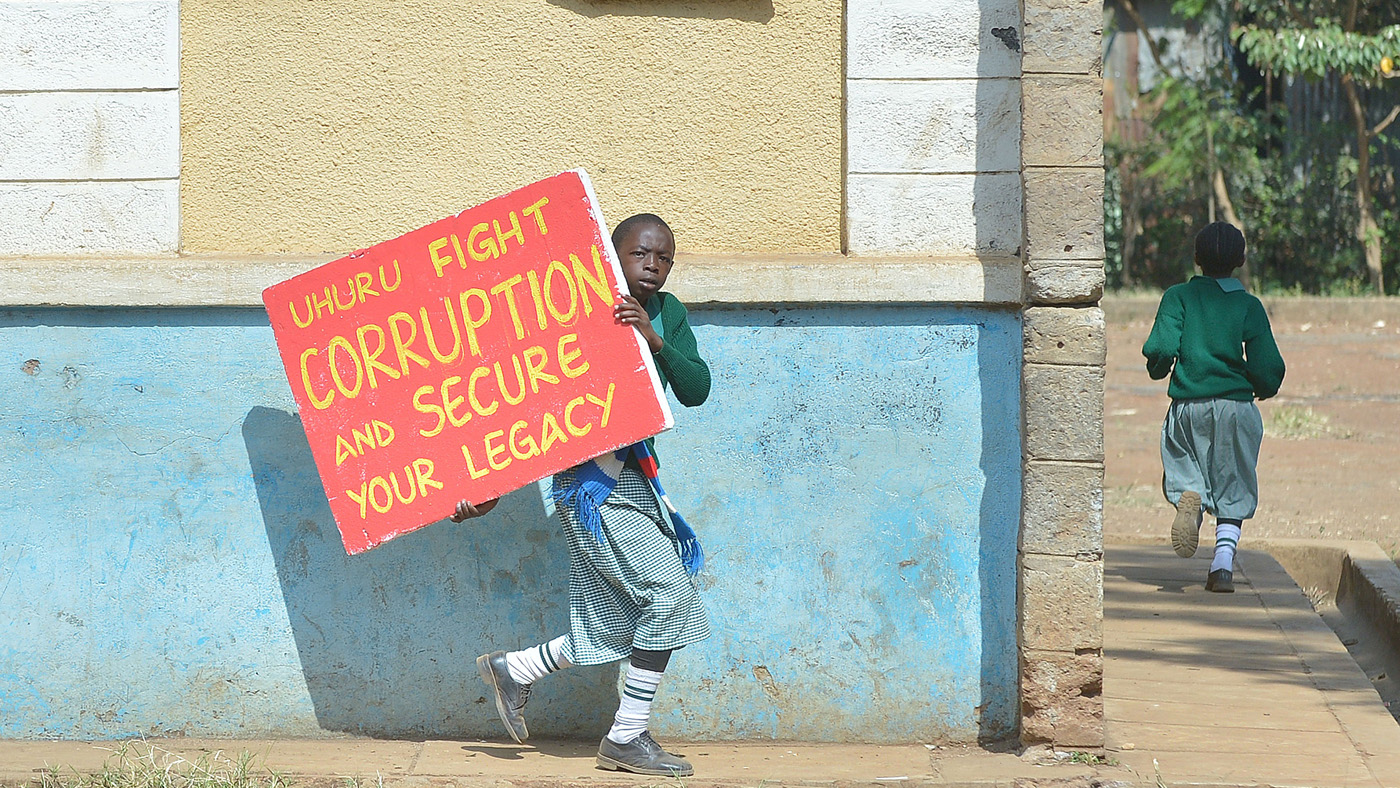The ten most corrupt countries in the world
Cycle of corruption has fuelled social inequality, which has pushed disenchanted citizens toward populism

A free daily email with the biggest news stories of the day – and the best features from TheWeek.com
You are now subscribed
Your newsletter sign-up was successful
The rise of populism over the past year has led to an increase in corruption, according to a new report.
Transparency International's annual Corruption Perceptions Index, which surveys experts from the likes of the World Bank, World Economic Forum and the Economist Intelligence Unit, found corruption increased in 2016.
An "unequal distribution of power in society and unequal distribution of wealth" has created a "continuous cycle of corruption fuelling social inequality which has led to disenchanted citizens across the globe, who then turn to populist politicians", it said.
The Week
Escape your echo chamber. Get the facts behind the news, plus analysis from multiple perspectives.

Sign up for The Week's Free Newsletters
From our morning news briefing to a weekly Good News Newsletter, get the best of The Week delivered directly to your inbox.
From our morning news briefing to a weekly Good News Newsletter, get the best of The Week delivered directly to your inbox.
Transparency's president, Jose Ugaz, said the perception of corruption has risen in countries where governments are becoming more autocratic.
"Instead of tackling crony capitalism," leaders "usually install even worse forms of corrupt systems", he said.
"In countries with populist or autocratic leaders, we often see democracies in decline and a disturbing pattern of attempts to crack down on civil society, limit press freedom and weaken the independence of the judiciary."
Turkey, where President Recep Tayyip Erdogan has sought to tighten his grip on power, and Hungary, where Prime Minister Viktor Orban has been criticised for increasing authoritarianism, have both seen their scores fall in recent years - the lower the score, the more corrupt the country.
A free daily email with the biggest news stories of the day – and the best features from TheWeek.com
Meanwhile, Argentina, which ousted a populist government late in 2015, is showing signs of improvement.
Transparency International also cites the Panama Papers leak and other revelations of tax-evasion, money-laundering and "massive and pervasive" public-sector corruption networks as further causes of the overall rise in corruption recorded in the past year.
It called for "deep-rooted systemic reforms" to re-establish the balance of power and wealth. Among the proposals are "a public registry of beneficial owners of companies and penalties for professionals who move corrupt money across borders".
Somalia, which has held the dubious honour of being the world's most corrupt country for the past ten years, retains its place at the top of the list, followed by South Sudan, North Korea and Syria.
The US dropped two points from last year, dragging its ranking down to 18th overall. Transparency issued a statement last week in which it said Trump's government appointments and failure to divest himself of his business interests were "rife with potential conflicts of interest".
The ten least corrupt nations:
1. Denmark2. New Zealand3. Finland4. Sweden5. Switzerland6. Norway7. Singapore8. Netherlands9. Canada10. Germany/Luxembourg/UK (joint)
And the most corrupt:
1. Somalia2. South Sudan3. North Korea4. Syria5. Yemen6. Sudan7. Libya8. Afghanistan9. Guinea-Bissau10. Venezuela/Iraq (joint)
-
 Epstein files topple law CEO, roil UK government
Epstein files topple law CEO, roil UK governmentSpeed Read Peter Mandelson, Britain’s former ambassador to the US, is caught up in the scandal
-
 Iran and US prepare to meet after skirmishes
Iran and US prepare to meet after skirmishesSpeed Read The incident comes amid heightened tensions in the Middle East
-
 Syria’s Kurds: abandoned by their US ally
Syria’s Kurds: abandoned by their US allyTalking Point Ahmed al-Sharaa’s lightning offensive against Syrian Kurdistan belies his promise to respect the country’s ethnic minorities
-
 Israel retrieves final hostage’s body from Gaza
Israel retrieves final hostage’s body from GazaSpeed Read The 24-year-old police officer was killed during the initial Hamas attack
-
 China’s Xi targets top general in growing purge
China’s Xi targets top general in growing purgeSpeed Read Zhang Youxia is being investigated over ‘grave violations’ of the law
-
 Syria’s Islamic State problem
Syria’s Islamic State problemIn The Spotlight Fragile security in prison camps leads to escape of IS fighters
-
 Panama and Canada are negotiating over a crucial copper mine
Panama and Canada are negotiating over a crucial copper mineIn the Spotlight Panama is set to make a final decision on the mine this summer
-
 Why Greenland’s natural resources are nearly impossible to mine
Why Greenland’s natural resources are nearly impossible to mineThe Explainer The country’s natural landscape makes the task extremely difficult


